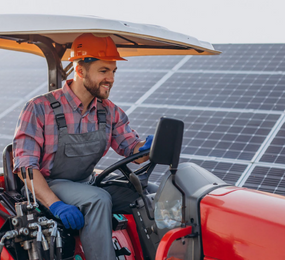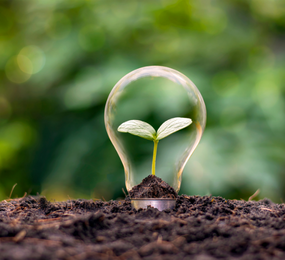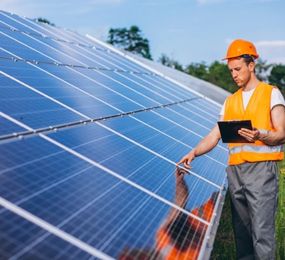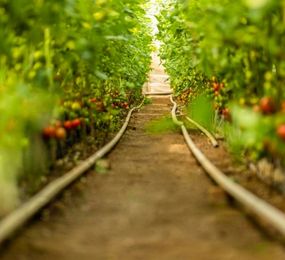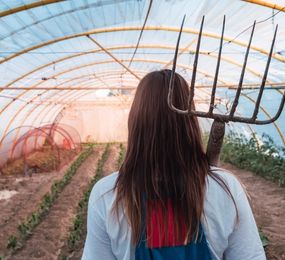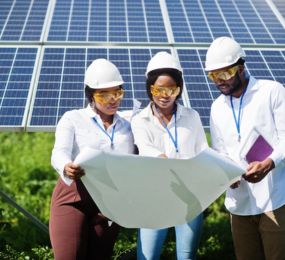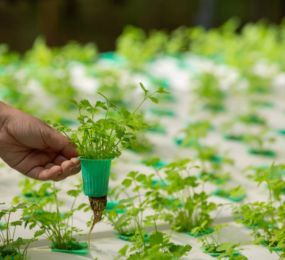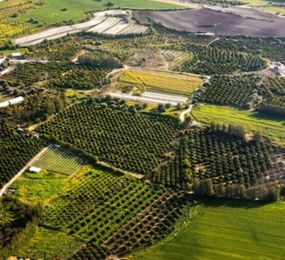As the 2nd Annual AgriVoltaics Europe event approaches, scheduled to take place on 7th - 9th November, 2023, in Steigenberger Airport Hotel, Amsterdam, Netherlands, one of the highly anticipated presentations will shed light on the remarkable synergies between agriculture and solar energy. This article delves into the significance of these synergies and explores how agrivoltaics, the integration of agricultural practices and solar energy production, can contribute to sustainable food production and renewable energy generation.
Agriculture and solar energy production are essential sectors for ensuring a sustainable future. The convergence of these two sectors through agrivoltaics offers a multitude of synergistic benefits that go beyond individual contributions, resulting in a more efficient, resilient, and environmentally friendly system.
Agrivoltaic systems provide an opportunity to optimise water and nutrient management in agricultural practices. The shading effect of solar panels helps reduce evapotranspiration, minimising water loss from the soil. This enables more efficient water utilisation, particularly in regions prone to water scarcity. Moreover, solar panels can serve as rainwater collection surfaces, facilitating the harvesting and storage of water for irrigation purposes. By integrating these systems, agrivoltaics enhance water availability and promote sustainable agricultural practices.
Agrivoltaics contribute to soil health improvement and carbon sequestration, mitigating the impacts of climate change. The shading provided by solar panels helps maintain soil moisture, reduce soil erosion, and protect against extreme temperature fluctuations. Additionally, the integration of diverse crops in agrivoltaic systems, along with the incorporation of cover crops and rotational practices, enhances soil fertility and biodiversity. Furthermore, the solar panels themselves contribute to carbon sequestration by reducing the reliance on fossil fuels and supporting the generation of clean energy.
Agrivoltaics have the potential to foster biodiversity conservation. The diversified cropping systems within these integrated systems provide habitats for a range of plant and animal species, promoting ecosystem resilience and supporting pollinators and beneficial insects. Proper management practices, such as minimising pesticide usage and creating buffer zones, can further enhance biodiversity conservation within agrivoltaic systems. This approach not only safeguards the ecological balance but also helps in natural pest control and reduces the dependence on synthetic inputs.
The integration of solar energy production within agricultural landscapes offers significant advantages for renewable energy generation. Agrivoltaic systems can utilise the available land resources efficiently, making productive use of previously underutilised spaces. By generating clean energy, agrivoltaics reduce greenhouse gas emissions and contribute to the transition to a low-carbon economy. The surplus energy produced can be fed back into the grid, enhancing the resilience and reliability of the overall energy system.
Agrivoltaics hold the potential to drive rural development and empower local communities. By enabling farmers to become energy producers, agrivoltaic systems offer new income streams and economic opportunities. Furthermore, the establishment of local energy markets, where communities can directly benefit from renewable energy production, creates a sense of ownership and fosters regional sustainability. Agrivoltaics can strengthen local economies, create jobs, and enhance energy independence.
The upcoming presentation on the synergies between agriculture and solar energy at the 2nd Annual AgriVoltaics Europe event will showcase the transformative potential of agrivoltaics. By harnessing these synergies, agrivoltaics can revolutionise food production, promote renewable energy generation, and contribute to sustainable development. The integration of solar panels with agricultural practices unlocks a range of benefits, including improved water and nutrient management, enhanced soil health and carbon sequestration, biodiversity conservation, and opportunities for rural development. Agrivoltaics present a pathway towards a more resilient, sustainable, and harmonious future for agriculture and energy production.
To register or learn more about the Forum please check here:http://bit.ly/3kR0v2R.
For more information and group participation, contact us: [email protected]


